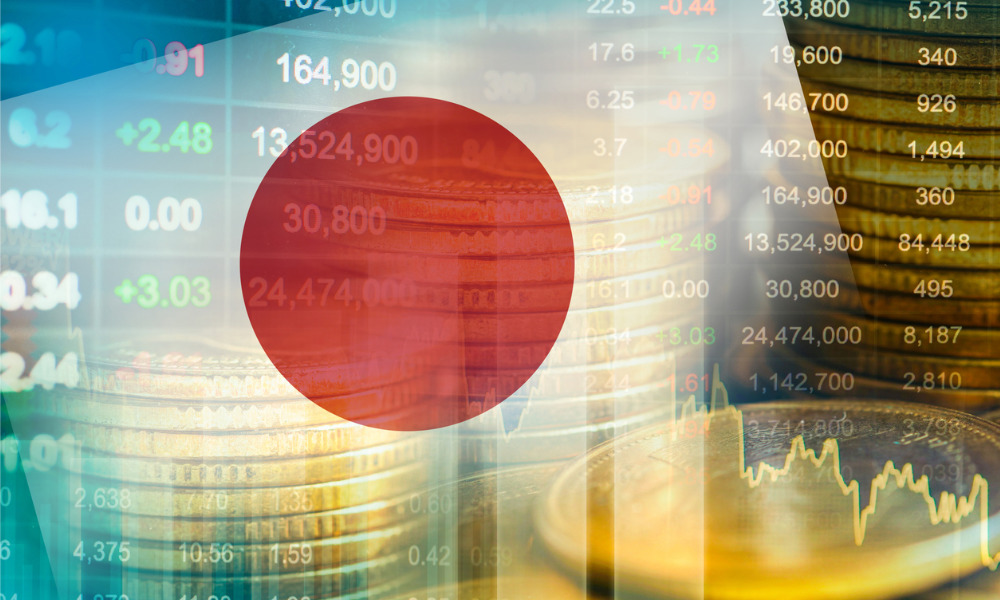

Foreign investors sold the largest amount of Japanese stocks since March last week amid signs of risk aversion.
They dumped ¥913 billion ($6.1 billion) of equities, more than three times as much as the previous week, data from Japan Exchange Group Inc. showed. It was the biggest sales on a net basis since the week ended March 10, when the collapse of Silicon Valley Bank shook markets globally. Japan’s Topix index fell 2.2% last week, while in the US, the S&P 500 Index lost 2.9%.
The increased selling is a sign that appetite from foreign investors has waned, after a massive ¥6.1 trillion of purchases last quarter, as the market become more expensive after a strong rally.
“A rise in US interest rates is hurting sentiment,” said Toshiya Matsunami, chief analyst at Nissay Asset Management. “Foreign investors tend to reduce risk exposure and take profits on assets that have done well when US stocks are falling.”
The Topix hit a 33-year high earlier this month on hopes inflation will return to the world’s third-biggest economy and that growth will strengthen, on top of expectations of governance reforms and a boost from a cheap yen for exporters.
The surge has boosted valuations for the Japanese market, with the Topix now trading at 14.8 times expected earnings, at premium over the MSCI Asia-Pacific index which is at 13.3 times. At the start of year, the Topix had a lower multiple than the pan-Asian index.
Taking into account futures contracts, overseas investors sold ¥1.25 trillion yen of equities, also the most on a weekly basis since March. In the other side of the equation Japanese individual investors bought a net ¥661 billion, the most since late March.

Relationships are key to our business but advisors are often slow to engage in specific activities designed to foster them.

Whichever path you go down, act now while you're still in control.

Pro-bitcoin professionals, however, say the cryptocurrency has ushered in change.

“LPL has evolved significantly over the last decade and still wants to scale up,” says one industry executive.

Survey findings from the Nationwide Retirement Institute offers pearls of planning wisdom from 60- to 65-year-olds, as well as insights into concerns.
Streamline your outreach with Aidentified's AI-driven solutions
This season’s market volatility: Positioning for rate relief, income growth and the AI rebound
